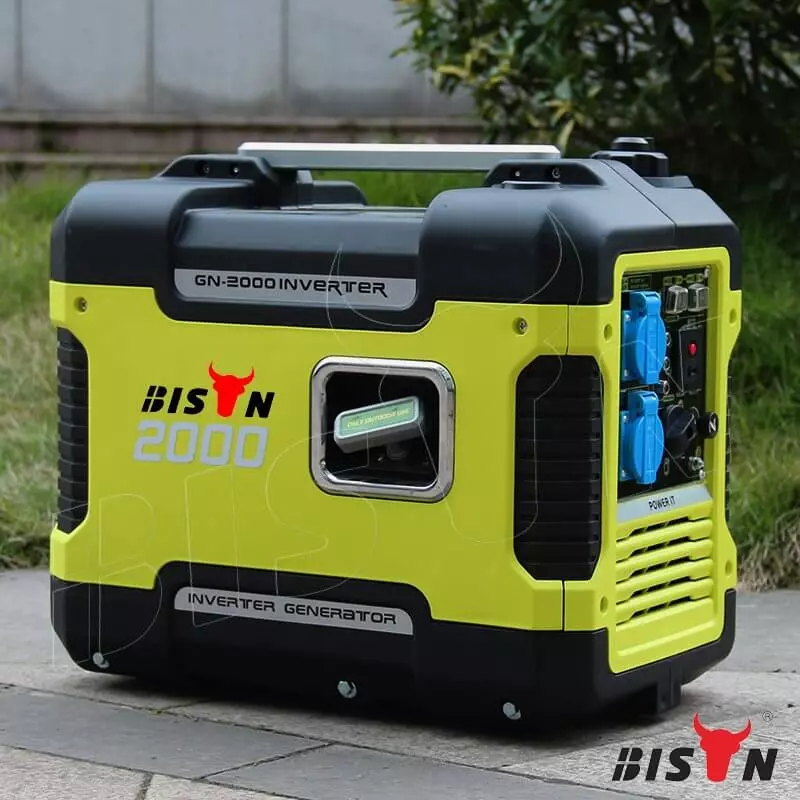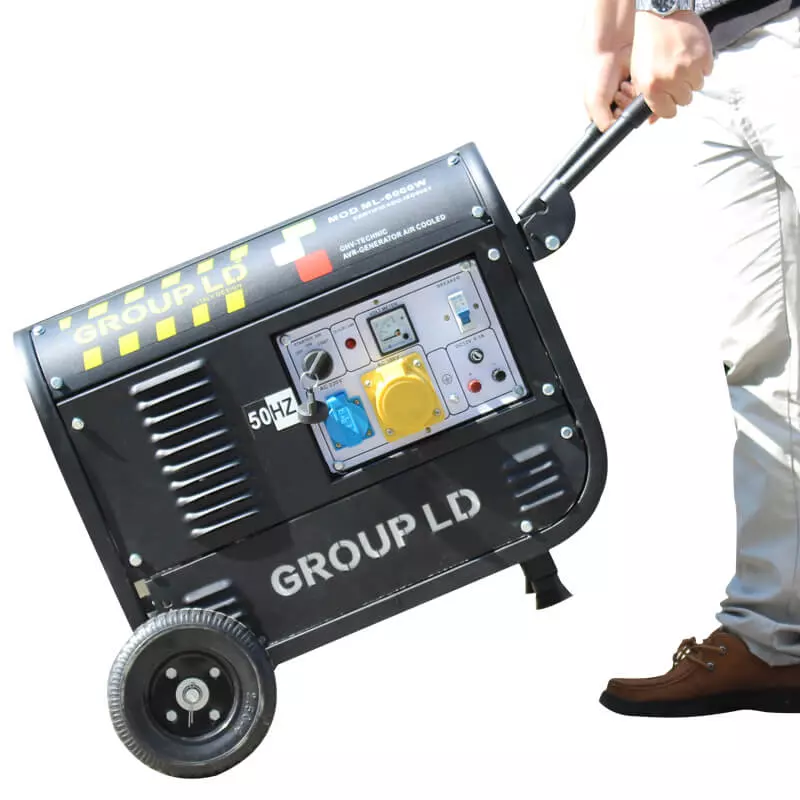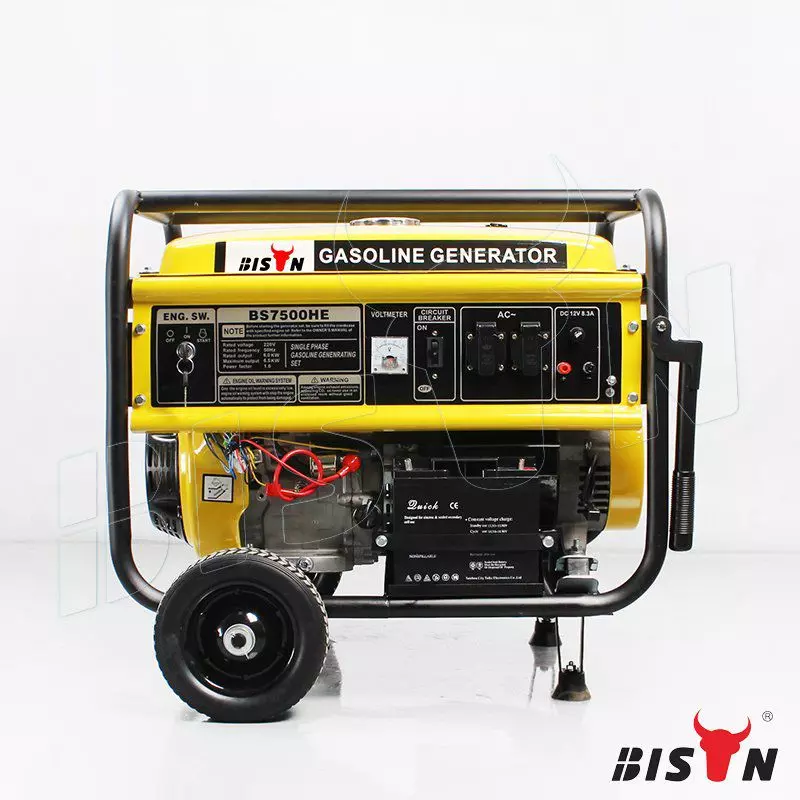Understanding factors influencing the output of generators
2023-12-19
Table of content
All electrical appliances have set conditions under which they operate at optimum levels. Any fluctuation in these conditions can cause the equipment to operate at reduced efficiency. Power generators are no exception. The generator's power isn't a fixed value—it's a variable contingent upon countless factors. These output variations are impacted by several key operational, environmental, and design factors, and, to ensure optimal performance, understanding these factors is paramount.
These factors can damage the generators and cause a reduction in output. In extreme cases, generators can stop working altogether. BISON delves into an exploration of these salient features. From discovering profound insights about generator performance, from fuel quality and size to load demand and environmental conditions...

What factors affect the output of a generator?
Generator size and capacity
Generators come in different sizes. The generator size and capacity, often quantified in terms of wattage (watts or kilowatts) or amperage (amps), are critical factors in determining how much electrical output it can provide. Generator's output must align with the demand it aims to serve—for instance, a small portable generator might be rated for 2,000 watts, suitable for powering a fridge and a few lights, while a large commercial generator may produce hundreds of kilowatts for industrial use.
Undersizing a generator can lead to several problems. When the power demand exceeds the generator's maximum capacity, it may lead to excessive heat build-up, overcurrent conditions, and ultimately, generator damage. Oversizing, on the other hand, can lead to inefficiency, as generators typically operate best at certain load percentages of their maximum capacity — often between 70% to 80%. In an emergency, it can be used for 100% efficiency. Operating a generator with too light of a load can also contribute to wet stacking, particularly in diesel generators, and other maintenance issues over time.
It's important to calculate the total power requirements of all connected equipment and ensure they do not surpass the generator’s recommended operating capacity. If you are uncertain about how to choose an appropriate generator size, we offer a comprehensive guide in our other article, providing a clear methodology to select a generator that will meet your needs.
Fuel quality and supply
High-quality fuel is crucial for the reliable operation and longevity of a generator. For example, using contaminated diesel can clog up the fuel system and reduce efficiency. The type of fuel also plays a significant role. Gasoline might be more accessible but it has a shorter shelf life compared to diesel, which is more stable but requires strict maintenance due to its higher lubricity and viscosity. For excample, low temperatures cause diesel to gel, changing the fuel's flow characteristics. Excess fuel cannot enter the combustion chamber as quickly, and the air-fuel ratio changes, causing insufficient combustion. In such situations, the generator engine may fail to start.
Maintaining a consistent and adequate fuel supply is just as crucial. Drops in fuel pressure or levels can cause generators to stutter or even shut down, interrupting power supply. This emphasizes the need for a good fuel monitoring system and regular checks to ensure uninterrupted generator operation.
Environmental factors affecting generator operation
Ambient temperature conditions are critical for proper ignition and operation of the generator. Regardless of the fuel that powers them, all generators require adequate air for combustion. Low air levels can cause startup failure. In diesel engines, air and fuel are mixed. The compressed air is heated, and when the peak temperature and pressure are achieved, diesel is ignited under the given conditions. In gasoline-powered generators, a mixture of air and fuel is introduced at once using a carburetor, and a spark is created to ignite the engine.
Altitude
At higher altitudes, air pressure reduces air density. This can cause problems with generator startup if not accounted for. The availability of ambient air to aid in the generator's heat dissipation is another impacted element. A lot of heat is generated during combustion and needs to be dissipated to the atmosphere to lower the engine temperature. Heat dissipation happens far more slowly at high altitudes than sea level because of the low air density, resulting in a constant engine temperature. The engine runs hot, and overheating is a common problem.
Temperature
Temperature extremities, whether hot or cold, can influence generator performance as they affect the viscosity of lubricants, and battery effectiveness, and can contribute to various operational challenges.
Humidity
Humidity measures the water content in a given air volume. In highly humid conditions, water vapor in the air displaces oxygen. Low oxygen levels affect ignition. Humidity levels also play a role by potentially causing condensation within components, leading to electrical problems and a decrease in output capacity.
Generator condition and maintenance practices
Regular and preventive maintenance are foundational for the optimal performance of a generator. Well-maintained engines typically run more efficiently and provide stable electricity output. Tasks such as changing the oil, cleaning air filters, and inspecting moving parts can prevent unexpected failures.
The availability of correct oil and coolant levels is non-negotiable for the smooth operation of a generator. Components subjected to wear and tear also need to be monitored as they can lead to reduced output and efficiency if not replaced or repaired timely.
However, as with any complex electrical equipment (such as industrial generator sets), a trained technician or experienced electrical contractor should always be consulted before attempting any modifications, not only for safety and reliability but to ensure you get the best possible performance from your equipment.
Generator structure
According to Faraday's law, the voltage is proportional to the number of windings and the rate of change of the magnetic field. So, you can add windings to move the magnet faster or use a stronger magnet at the same rate to increase the voltage.
Moreover, the type of windings—whether they’re copper or aluminum, for example—affects a generator's efficiency, voltage regulation, and current production. So, the structure and design of an alternator must be suited to its use case to provide the optimal balance of electrical output, durability, and efficiency.
Generator types
The factors of generators output can also depend on their type. For example, gas generators may have faster response times but can be sensitive to temperature changes, while diesel generators are more robust but might require more maintenance due to their heavier and more complex construction.
Solar generators require sunlight to produce electricity, making their efficiency heavily dependent on sunlight intensity, duration of exposure, and weather conditions. The capacity and health of the battery storage system also significantly influence their effective output.
Wind generators rely on wind speed and steadiness. Too little wind means no power, whereas too much can overwhelm and potentially damage the system. Turbulence and site location can either enhance or diminish the efficiency of power generation through wind turbines. Proper siting is therefore essential to capitalize on the most consistent wind flows available.
Future trends and research
Here are the emerging technologies and innovations impacting generator efficiency and output:
Intelligent control systems and advanced generator speed regulators for precise load management.
Hybrid generators that combine renewable energy sources with traditional methods for better sustainability.
High-capacity battery integration for effective energy storage and load balancing.
Heat recovery systems to convert waste into usable power.
Advanced combustion controls for optimally efficient and clean operations.
Modular generators that offer adaptability and redundancy for efficient power delivery.
These innovations are not only improving the efficiency and output of generators but are also helping meet the demand for greener and more sustainable energy production. As research continues, we can expect even more breakthroughs that will shape the future of power generation.
Conclusion
In this article, we have explored various factors that significantly affect the output of a generator—its size and capacity, fuel requirements, generator health, the impact of environmental conditions, and its internal structure and types. Each of these elements plays a critical role, with their interconnected impacts determining the overall efficiency and power output of a generator.
Understanding these factors is of paramount importance when selecting the right generator. As BISON, a leading generator manufacturing company in China, we are committed to integrating these understandings and technologies into our products. We strive to provide generators that offer high output, excellent fuel efficiency, and strong resilience under various operating conditions. For potential generator dealers reading this, we assure you of our continuous innovation and dedication to quality. Furthermore, we offer customized solutions tailored to your specific high-output generator needs, bolstering your ability to serve diverse power requirements and conditions swiftly and reliably.
Choosing the right generator may seem overwhelming, but with the proper knowledge and a partnership with a trusted provider, you can be confident of having a reliable, high-performing power source.





